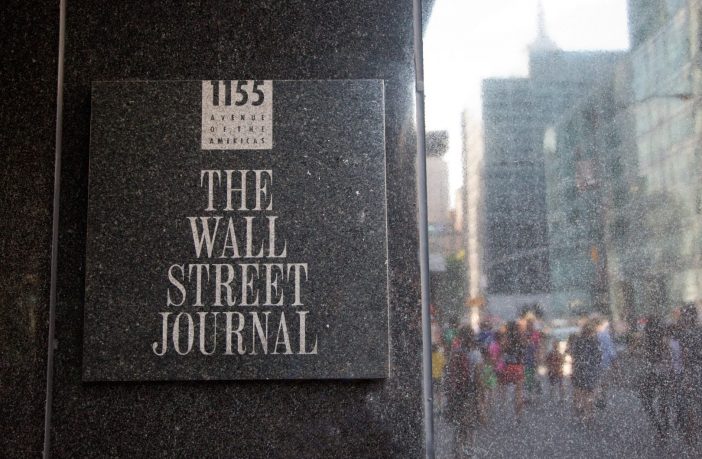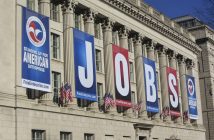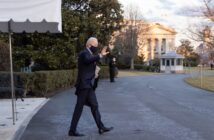With the journalistic self-immolation of the New York Times, the Wall Street Journal has emerged as the last bastion of Fourth Estate integrity among print dailies. While most editorial pages have become apologists or even outright cheerleaders for the “woke” mob, the Journal editorial page has resisted dogmatic conformity. The paper has even come a long way since it advocated in 1984 (fittingly enough) a five-word constitutional amendment, “There shall be open borders.”
But the “Wall Street” in the Wall Street Journal’s name is still there for a reason, and it was fully on display in the paper’s lead June 24 editorial, “Trump’s Immigration Gift to China.” The “gift to China,” in the opinion of the Journal’s editorial board, was the June 22 Proclamation that pauses admission of many categories of immigrants and guest workers in response to the unemployment crisis triggered by the coronavirus pandemic (oh, which by the way, originated in China).
Nevermind the editorial’s rote recitation of long discredited assertions of a shortage of skilled American workers, particularly in the STEM fields, or that it ignores the widespread abuse of the H-1B guest worker program. What is truly bizarre about the editorial is the absurd claim that the president’s order “will hamstring U.S. innovation, aiding China’s effort to dominate artificial intelligence, semiconductors and biotech. The winners,” the editorial continues, “will be China’s national champions including Huawei, Baidu, and Tencent.”
Perhaps the folks on the editorial page don’t spend a whole lot of time reading the news. What has become pretty clear is that China’s “national champions” of the tech field are the undisputed international champions when it comes to stealing technologies developed in other nations and marketing it as their own. And one of their preferred means of staying on the cutting edge of intellectual property theft is sending “students” and other temporary workers to countries like the United States where innovation does take place. While we may run a huge goods and services trade deficit with China, we also have the unfortunate distinction of running an even greater surplus when it comes to exporting (however unwittingly) intellectual property and trade secrets.
Far from being a gift to China, the pause in guest worker admissions will actually hamstring Chinese industry’s preferred means of acquiring new technologies: stealing it.




